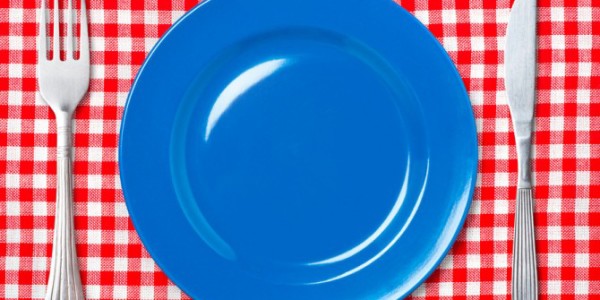Within the fitness and nutrition world, there are countless myths regarding what’s optimal for fat loss. One of the biggest myths still prevailing is that you need to eat many small meals per day to “keep your metabolism elevated”.
The reason this myth has gotten so much traction is because there’s evidence to show our metabolism increases after we’ve eaten. That’s true, but not to the degree it’s made out to be.
This process is known as the thermic effect of food. Our bodies burn a little bit more calories after a meal compared to when we’re at rest. This happens because digestion requires energy.
So yes, your metabolism is elevated after a meal. However, the extent to which it’s elevated depends on the total amount of calories taken in.
Research on this particular question has shown there isn’t a difference between eating several big meals versus eating many small meals (1). Eating 2-3 meals totaling 2,000 calories, burns just as many calories as eating 5-6 meals totaling 2,000 calories.
Another study looked more directly at this question (2). The researchers had 16 obese participants broken into two groups. Each group was prescribed an 8 week energy-restricted diet. This means both diets were equal in calories, but were less than the subjects normally ate.
The groups differed only in the number of meals eaten. The first group had a high meal frequency (high MF), eating 3 meals and 3 snacks each day. The second group had a low meal frequency (low MF) and ate only 3 meals per day.
The results showed both groups lost weight, body fat, and muscle mass. However, there was do difference between their results. The authors of the study concluded that a high MF did not increase weight loss.
The reason both groups lost weight is because they were eating fewer calories than normal. A caloric deficit is the most important component for fat loss, not the number of meals eaten.
Another study looked at meal frequency and it’s effects on blood sugar and insulin (3). They had 8 subjects eat 3 separate ways. The first was 3 high carbohydrate meals. The second was 6 high carbohydrate meals. And the third was 6 high protein meals.
What they found was very interesting. When the subjects ate 6 high carbohydrate meals, their blood sugar remained elevated through the day, compared to only 3 high carbohydrate meals. However, the high protein meals actually reduced this effect.
This is significant because high resting blood sugar can contribute to diabetes and obesity. When this happens, insulin is elevated throughout the body.
When insulin is chronically high, the body tends to store more fat and prevent fat from being burned. It’s extremely difficult to see any real fat loss once this occurs. This study reveals not only how smaller meals aren’t necessary for fat loss but also how important protein is to overall health.
As you can see, this fat loss myth doesn’t hold any weight. While it’s true metabolism is elevated after eating, the total amount of calories from the meal is most important.
Research shows that meal frequency ultimately comes down to personal preference. If you have a full-time job, stopping to eat every 2-3 hours is almost impossible. Based on the current evidence, eating when you are hungry, especially a high-protein meal, seems to be a better strategy.
References:
1. Bellisle, F. et al. Meal frequency and energy balance. Br J Nutr. 1997 Apr 77. Suppl 1:S57-70.
2. Cameron, JD. et al. Increased meal frequency does not promote greater weight loss in subjects who were prescribed and 8-week equi-energetic energy-restricted diet.Br J Nutr. 2010 Apr 103(8):1098-101.
3. Holmstrup, ME. et al. Effect of meal frequency on glucose and insulin excursions over the course of a day. e-SPEN Journal. December 2010. Volume 5, Issue 6, Pages e277-280.
Photo Credit:
1. http://www.thequestawaitsyou.com/






